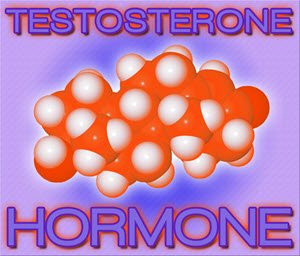Introduction
Depo Testosterone, a widely recognized injectable form of testosterone produced by Pfizer, plays a crucial role in hormone replacement therapy for men with low testosterone levels. While its benefits in improving muscle mass, bone density, and libido are well-documented, emerging research suggests a potential association with respiratory health in American males. This article delves into the impact of Depo Testosterone on respiratory function, offering insights into its implications and the need for further research.
Understanding Depo Testosterone
Depo Testosterone is a testosterone cypionate injection that is administered intramuscularly. It is primarily used to treat conditions associated with testosterone deficiency, such as hypogonadism. The drug works by supplementing the body's natural testosterone levels, thereby alleviating symptoms such as fatigue, decreased libido, and mood disturbances. Given its widespread use, understanding its broader health impacts, including on respiratory health, is essential.
Respiratory Health and Testosterone
Recent studies have begun to explore the relationship between testosterone levels and respiratory health. Testosterone receptors are present in the lungs, suggesting that testosterone may influence lung function. Research indicates that testosterone can have both anti-inflammatory and pro-inflammatory effects, depending on the context and concentration. This dual nature necessitates a careful examination of how Depo Testosterone might affect respiratory health in American males.
Clinical Evidence and Observations
Several clinical studies have investigated the link between testosterone therapy and respiratory outcomes. A study published in the *Journal of Clinical Endocrinology & Metabolism* found that men receiving testosterone therapy experienced improvements in lung function, as measured by forced expiratory volume in one second (FEV1). However, other research has suggested potential risks, such as an increased incidence of sleep apnea, a condition that can severely impact respiratory health.
Sleep Apnea and Depo Testosterone
Sleep apnea, characterized by repeated interruptions in breathing during sleep, is a significant concern for men on testosterone therapy. The American Sleep Apnea Association notes that testosterone can exacerbate sleep apnea by increasing the size of the upper airway muscles, potentially leading to airway obstruction. This is particularly relevant for American males, who may already be at a higher risk due to lifestyle factors such as obesity and sedentary behavior.
Potential Mechanisms
The mechanisms by which Depo Testosterone might affect respiratory health are multifaceted. Testosterone can influence the production of inflammatory cytokines, which play a role in lung inflammation and disease. Additionally, testosterone's impact on muscle mass and strength could indirectly affect respiratory muscle function, potentially improving or worsening respiratory outcomes depending on individual health profiles.
Clinical Implications and Recommendations
Given the mixed findings, clinicians prescribing Depo Testosterone must consider the potential respiratory implications. Regular monitoring of lung function and sleep patterns is advisable, especially for patients with pre-existing respiratory conditions. Furthermore, patients should be educated about the signs of sleep apnea and encouraged to report any respiratory symptoms promptly.
Future Research Directions
The current body of evidence on Depo Testosterone and respiratory health is limited and often contradictory. Future research should focus on large-scale, longitudinal studies to better understand the long-term effects of testosterone therapy on lung function and respiratory health. Such studies should account for variables such as age, baseline testosterone levels, and co-morbid conditions to provide a clearer picture of the risks and benefits.
Conclusion
Depo Testosterone, while beneficial for many men with testosterone deficiency, may have complex implications for respiratory health. American males considering or currently using this therapy should be aware of the potential respiratory effects and work closely with their healthcare providers to monitor their health. As research continues to evolve, a more comprehensive understanding of the relationship between Depo Testosterone and respiratory health will emerge, guiding better clinical practices and patient care.
Contact Us Today For A Free Consultation

- Depo Testosterone: Enhancing Sexual Health in American Men with Low Testosterone [Last Updated On: March 17th, 2025] [Originally Added On: March 17th, 2025]
- Depo Testosterone: Impacts on Weight Management in American Males with Low Testosterone [Last Updated On: March 17th, 2025] [Originally Added On: March 17th, 2025]
- Depo Testosterone: Psychological Impacts on Mood, Cognition, and Self-Esteem in Men [Last Updated On: March 19th, 2025] [Originally Added On: March 19th, 2025]
- Depo Testosterone: Enhancing American Men's Health and Vitality [Last Updated On: March 19th, 2025] [Originally Added On: March 19th, 2025]
- American Men's Experiences with Depo Testosterone Therapy: Benefits and Challenges [Last Updated On: March 20th, 2025] [Originally Added On: March 20th, 2025]
- Depo Testosterone: Enhancing Energy and Vitality in Men with Hypogonadism [Last Updated On: March 20th, 2025] [Originally Added On: March 20th, 2025]
- Depo Testosterone: Enhancing Athletic Performance and Associated Risks in American Male Athletes [Last Updated On: March 21st, 2025] [Originally Added On: March 21st, 2025]
- Depo Testosterone: Enhancing Life for American Males with Hypogonadism [Last Updated On: March 21st, 2025] [Originally Added On: March 21st, 2025]
- Depo Testosterone: Impacts on Prostate Health and Cancer Risk in American Men [Last Updated On: March 21st, 2025] [Originally Added On: March 21st, 2025]
- Depo Testosterone: Benefits, Risks, and Management for Low Testosterone Treatment [Last Updated On: March 22nd, 2025] [Originally Added On: March 22nd, 2025]
- Depo Testosterone: Vital for Men's Health, Challenges in Accessibility and Solutions [Last Updated On: March 22nd, 2025] [Originally Added On: March 22nd, 2025]
- Depo Testosterone: Efficacy and Safety in American Males with Hypogonadism [Last Updated On: March 22nd, 2025] [Originally Added On: March 22nd, 2025]
- Navigating Insurance Coverage for Depo Testosterone: A Guide for American Men [Last Updated On: March 22nd, 2025] [Originally Added On: March 22nd, 2025]
- Depo Testosterone: Benefits and Considerations for Transgender American Males' HRT [Last Updated On: March 22nd, 2025] [Originally Added On: March 22nd, 2025]
- Depo Testosterone: Treating Delayed Puberty in American Males Effectively [Last Updated On: March 22nd, 2025] [Originally Added On: March 22nd, 2025]
- Depo Testosterone: Benefits and Skin Health Effects in American Men [Last Updated On: March 22nd, 2025] [Originally Added On: March 22nd, 2025]
- Depo Testosterone Therapy: Future Trends and Impact on American Male Health [Last Updated On: March 23rd, 2025] [Originally Added On: March 23rd, 2025]
- Depo Testosterone: Enhancing Libido and Sexual Function in American Men with Hypogonadism [Last Updated On: March 23rd, 2025] [Originally Added On: March 23rd, 2025]
- Depo Testosterone: A Promising Treatment for ED in American Men with Low Testosterone [Last Updated On: March 23rd, 2025] [Originally Added On: March 23rd, 2025]
- Depo Testosterone: Effects on Blood Sugar Levels in American Males [Last Updated On: March 24th, 2025] [Originally Added On: March 24th, 2025]
- Depo Testosterone: Benefits vs. Cardiovascular Risks for American Men [Last Updated On: March 24th, 2025] [Originally Added On: March 24th, 2025]
- Depo Testosterone: Monitoring, Dosage Adjustment, and Safety for American Males [Last Updated On: March 24th, 2025] [Originally Added On: March 24th, 2025]
- Depo-Testosterone's Impact on Sleep Quality in American Men: Insights and Management [Last Updated On: March 24th, 2025] [Originally Added On: March 24th, 2025]
- Depo Testosterone: Benefits and Risks for Older American Men's Health [Last Updated On: March 24th, 2025] [Originally Added On: March 24th, 2025]
- Depo Testosterone: Enhancing Life for American Male Cancer Survivors [Last Updated On: March 24th, 2025] [Originally Added On: March 24th, 2025]
- Depo Testosterone: Managing Chronic Conditions in American Men [Last Updated On: March 24th, 2025] [Originally Added On: March 24th, 2025]
- Depo Testosterone: Enhancing American Male Body Composition and Health [Last Updated On: March 24th, 2025] [Originally Added On: March 24th, 2025]
- Depo Testosterone: Enhancing Stress Management in American Males with Low Testosterone [Last Updated On: March 24th, 2025] [Originally Added On: March 24th, 2025]
- Depo Testosterone: Vital Therapy for Hypogonadism in American Male Adolescents [Last Updated On: March 25th, 2025] [Originally Added On: March 25th, 2025]
- Depo Testosterone: Enhancing Life Quality in American Male Veterans [Last Updated On: March 25th, 2025] [Originally Added On: March 25th, 2025]
- Depo Testosterone: Enhancing Endurance in American Male Athletes - Benefits and Risks [Last Updated On: March 25th, 2025] [Originally Added On: March 25th, 2025]
- Depo Testosterone and Hair Loss: Risks, Management, and Psychological Impact [Last Updated On: March 25th, 2025] [Originally Added On: March 25th, 2025]
- Depo Testosterone Pfizer: Enhancing Mood and Well-being in American Males with Hypogonadism [Last Updated On: March 25th, 2025] [Originally Added On: March 25th, 2025]
- Depo Testosterone's Impact on Digestive Health in American Males: Effects and Considerations [Last Updated On: March 25th, 2025] [Originally Added On: March 25th, 2025]
- Depo Testosterone's Impact on Immune System: Insights for American Males [Last Updated On: March 26th, 2025] [Originally Added On: March 26th, 2025]
- Depo Testosterone: Enhancing Cognitive Function in American Males with TRT [Last Updated On: March 26th, 2025] [Originally Added On: March 26th, 2025]
- Depo Testosterone: A Promising Adjunct in Diabetes Management for American Males [Last Updated On: March 26th, 2025] [Originally Added On: March 26th, 2025]
- Depo Testosterone: Balancing Hormone Therapy and Fertility in American Males [Last Updated On: March 27th, 2025] [Originally Added On: March 27th, 2025]
- Depo Testosterone: Benefits for Hypogonadism and Potential Eye Health Risks in American Males [Last Updated On: March 27th, 2025] [Originally Added On: March 27th, 2025]
- Depo Testosterone: Enhancing Life Quality for American Males with HIV/AIDS [Last Updated On: March 27th, 2025] [Originally Added On: March 27th, 2025]
- Depo Testosterone: Benefits, Liver Risks, and Monitoring for American Men [Last Updated On: March 27th, 2025] [Originally Added On: March 27th, 2025]
- Depo Testosterone's Impact on Joint Health in American Males: Risks and Benefits [Last Updated On: March 27th, 2025] [Originally Added On: March 27th, 2025]
- Depo Testosterone: Enhancing Fertility in American Males with Low Testosterone [Last Updated On: March 27th, 2025] [Originally Added On: March 27th, 2025]
- Depo Testosterone: Pfizer's Injectable HRT for American Males with Low Testosterone [Last Updated On: March 27th, 2025] [Originally Added On: March 27th, 2025]
- Depo Testosterone: Benefits and Risks for American Male Weightlifters [Last Updated On: March 27th, 2025] [Originally Added On: March 27th, 2025]
- Depo Testosterone: Treating Anemia in American Men with Pfizer's Injectable Solution [Last Updated On: March 28th, 2025] [Originally Added On: March 28th, 2025]
- Depo Testosterone: Effects on Kidney Function and Monitoring in American Males [Last Updated On: March 28th, 2025] [Originally Added On: March 28th, 2025]
- Depo Testosterone: Treating Chronic Fatigue Syndrome in American Males [Last Updated On: March 28th, 2025] [Originally Added On: March 28th, 2025]
- Depo Testosterone's Role in Managing Osteoporosis in American Males: A Comprehensive Overview [Last Updated On: March 28th, 2025] [Originally Added On: March 28th, 2025]
- Depo Testosterone: A Promising Treatment for Depression in American Males with Low Testosterone [Last Updated On: March 29th, 2025] [Originally Added On: March 29th, 2025]
- Depo Testosterone's Impact on Ear Health in American Males: A Comprehensive Review [Last Updated On: April 2nd, 2025] [Originally Added On: April 2nd, 2025]
- Depo Testosterone: A Potential Treatment for Anxiety in American Males with Low Testosterone [Last Updated On: April 2nd, 2025] [Originally Added On: April 2nd, 2025]
- Depo Testosterone's Impact on Dental Health in American Males: A Comprehensive Analysis [Last Updated On: April 2nd, 2025] [Originally Added On: April 2nd, 2025]
- Depo Testosterone: Managing Thyroid Disorders in American Males [Last Updated On: April 3rd, 2025] [Originally Added On: April 3rd, 2025]
- Depo Testosterone: Managing Autoimmune Diseases in American Males [Last Updated On: April 7th, 2025] [Originally Added On: April 7th, 2025]
- Depo Testosterone: A Promising Solution for Migraine Management in American Males [Last Updated On: April 7th, 2025] [Originally Added On: April 7th, 2025]
- Depo Testosterone's Impact on Skin Health in American Males: Benefits and Side Effects [Last Updated On: April 8th, 2025] [Originally Added On: April 8th, 2025]
- Depo Testosterone: Uses, Allergic Reactions, and Management for American Males [Last Updated On: April 8th, 2025] [Originally Added On: April 8th, 2025]
- Depo Testosterone: A Promising Treatment for Insomnia in American Males [Last Updated On: April 8th, 2025] [Originally Added On: April 8th, 2025]
- Depo Testosterone: A Promising Option for Chronic Pain Management in American Males [Last Updated On: April 9th, 2025] [Originally Added On: April 9th, 2025]
- Depo Testosterone: Benefits for Neurological Disorders in American Males [Last Updated On: April 9th, 2025] [Originally Added On: April 9th, 2025]
- Depo Testosterone: Impacts on Cardiovascular Health in American Males [Last Updated On: April 10th, 2025] [Originally Added On: April 10th, 2025]
- Depo Testosterone's Impact on Gastrointestinal Health in American Males [Last Updated On: April 10th, 2025] [Originally Added On: April 10th, 2025]
- Depo Testosterone: Understanding TRT for Hypogonadism in American Males [Last Updated On: April 10th, 2025] [Originally Added On: April 10th, 2025]
- Depo Testosterone: Enhancing Respiratory Health in Hypogonadal American Males [Last Updated On: April 11th, 2025] [Originally Added On: April 11th, 2025]
- Depo Testosterone: Enhancing Arthritis Management in American Males [Last Updated On: April 13th, 2025] [Originally Added On: April 13th, 2025]
- Depo Testosterone: Effects, Risks, and Management in Male Reproductive Health [Last Updated On: April 15th, 2025] [Originally Added On: April 15th, 2025]
- Depo Testosterone's Impact on Psychiatric Disorders in American Males: A Comprehensive Review [Last Updated On: April 16th, 2025] [Originally Added On: April 16th, 2025]
- Depo Testosterone: Benefits and Considerations for American Males with Genetic Disorders [Last Updated On: April 17th, 2025] [Originally Added On: April 17th, 2025]
- Depo Testosterone: Managing Musculoskeletal Disorders in American Males [Last Updated On: April 17th, 2025] [Originally Added On: April 17th, 2025]
- Depo Testosterone: Potential Dermatological Uses and Considerations in American Males [Last Updated On: April 18th, 2025] [Originally Added On: April 18th, 2025]
- Depo Testosterone: Enhancing Metabolic Health in American Males with Pfizer's Therapy [Last Updated On: April 18th, 2025] [Originally Added On: April 18th, 2025]
- Depo Testosterone: Enhancing Life for American Males with Renal Disorders [Last Updated On: April 18th, 2025] [Originally Added On: April 18th, 2025]
- Depo-Testosterone's Impact on Urological Disorders in American Males: Benefits and Risks [Last Updated On: April 18th, 2025] [Originally Added On: April 18th, 2025]
- Depo Testosterone: A Promising Treatment for Inflammatory Diseases in American Males [Last Updated On: April 18th, 2025] [Originally Added On: April 18th, 2025]
- Depo Testosterone's Impact on Hematological Disorders in American Males: Risks and Management [Last Updated On: April 20th, 2025] [Originally Added On: April 20th, 2025]
Word Count: 601





















